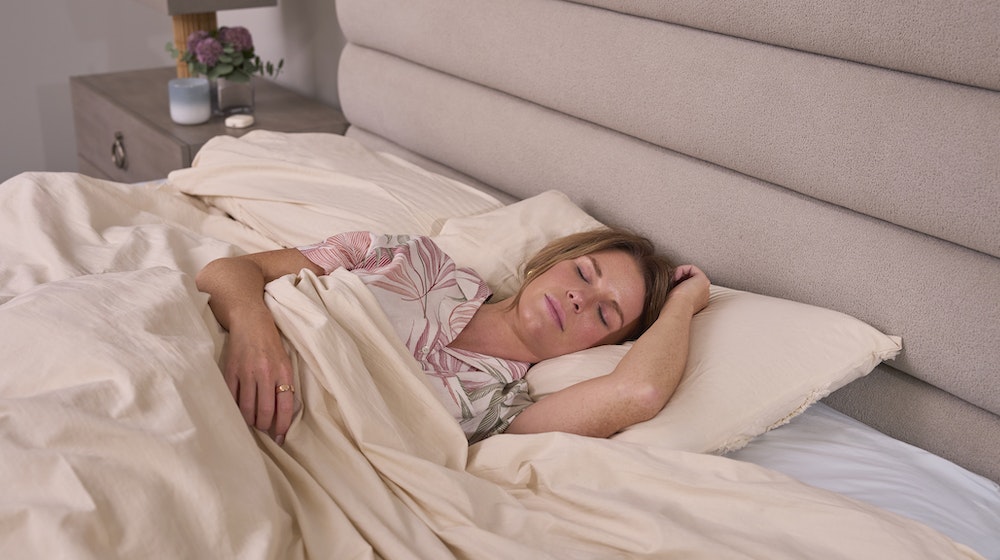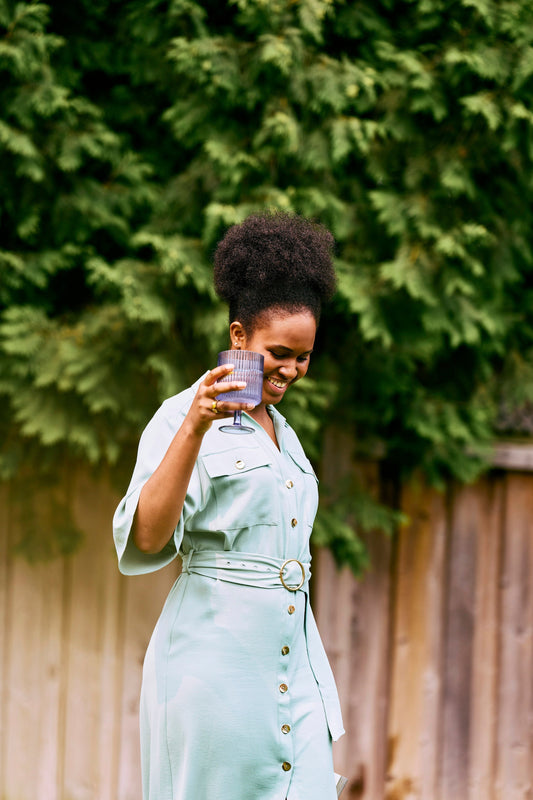When I was in my mid 30’s, I experienced an upheaval in a romantic relationship. This event triggered lots of anxiety and a lot of lost sleep. I remember lying in bed for up to two hours many nights, waiting for sleep to come. After a couple of months of tossing and turning, my insomnia was starting to take its toll on me. That’s when I decided to consult my family doctor who gave me a prescription for sleeping pills.
What is insomnia?
Insomnia is a sleep disorder characterized by difficulty falling asleep, staying asleep, or experiencing non-restorative sleep, despite having the opportunity for adequate sleep. The consequences of insomnia can extend beyond nighttime hours, affecting your daily functioning and quality of life. Symptoms of insomnia include daytime sleepiness, fatigue, mood disturbances, difficulty concentrating, irritability, impaired memory, and reduced productivity.1
Taking Medication for Insomnia: Side Effects I Experienced
At the time, I worked in pharmaceutical sales so the idea of taking a pill for quick relief didn’t spark any concern for me. After all, there seemed to be a pill for every ill. Taking a sleeping pill looked like the magic bullet as it drastically reduced the time it took for me to drift off into sleep. However, I soon realized that the cost of quickly falling asleep came with a price. While taking sleep pills, I started to notice my behavior changing:
- There were several occasions when I ate quantities of food I wouldn’t have eaten. An unopened box of cookies didn’t stand a chance in my house.
- I experienced a chronic fogginess that lingered until close to lunchtime.
- My subpar mental acuity in the morning started to take a toll on my work performance, and I was reprimanded more than once for failing to submit my work on time.
Little did I know it, but at the time I was inadvertently overdosing on sleeping pills. In 2013, the FDA ordered the manufacturers of these particular sleeping pills to reduce the dose for women by half due to reports of impaired alertness in tasks after waking up, including driving.2
I was in a quandary. I wanted to sleep but also didn’t want the unpleasant next-day side effects to plague me. Yet I put up with the side effects for eight years because I wasn’t aware there was a way to get a full night’s sleep without the pills.
How I Broke Up With My Sleeping Pills
In my early 40’s, I met the man who I eventually married. Early in our relationship, he lovingly called me out about my use of sleeping pills. What was the most alarming to him was how I acted like a “zombie” (his words).
That was the pivotal moment for me when I knew I needed to break up with the meds. I bought a pill cutter and started to taper my dose. There were many stops and starts with this process, but after a few months, I was finally off the pills.
It didn’t even occur to me to consult with my doctor before weaning myself off the pills. Now when I speak with clients or friends who want to stop taking sleeping pills, I urge them to get guidance from the provider who prescribed the sleep medication. If you stop too abruptly then you could be at risk of getting rebound insomnia.
What is rebound insomnia?
Rebound insomnia refers to a temporary worsening of sleep problems that occur after discontinuing or reducing the use of sleep medications. It is a potential withdrawal effect that can occur when the body and brain adjust to the absence of the medication that previously helped induce sleep.3
How to Sleep Better: 3 Natural Sleep Remedies I Wish I Tried First
If I knew then what I know now about sleep, I would have done a few things differently during my insomnia experience. However, be sure to talk to your doctor about the best course of action given your personal medical history and experience with insomnia.
Remove the Clock
I would have removed the clock from my bedside table. This seems like such common sense now, but it never occurred to me that watching the clock could make my sleep anxiety worse. A recent study even showed that monitoring time while trying to sleep can exacerbate insomnia and increase the use of sleep aids.4
Cognitive Behavioral Therapy for Insomnia
Instead of going straight to sleeping pills, I would have tried CBT-I (Cognitive Behavioral Therapy for Insomnia) first. CBT-I is now recommended as a first-line treatment for insomnia by the American College of Physicians.5 They reason that CBT-I is likely to have fewer harms, as opposed to sleep medications that can come with serious adverse effects. CBT-I is a structured approach that focuses on changing negative thought patterns and behaviors to improve sleep quality and treat insomnia.
Follow Your Circadian Rhythm
I would have leaned into practices (that I now teach my clients) to further strengthen my circadian rhythm to get better sleep. For example, getting at least 10 minutes of natural light upon awakening and waking up at the same time every morning allows your body to naturally become sleepy around the same time each night.
What are other natural strategies for making better sleep a reality?
One of the biggest factors you have control over when it comes to sleep is your routine. Sleep hygiene, like dental hygiene or personal hygiene, involves small actions you take each day to improve your sleep health such as establishing a regular sleep schedule, following a sleep routine, minimizing screen use before bed, dimming the lights, and more. Head to our blog on sleep quality vs. quantity for tips on better sleep, plus insight into what getting a good night’s rest really means. But if you’ve been struggling with insomnia for a while, it might be time to speak with a sleep specialist for additional strategies.
My Journey With Insomnia: The Takeaway
My journey with insomnia and reliance on sleeping pills taught me valuable lessons about taking control of my sleep health. While the allure of a quick fix may be tempting, it often comes at a cost. If you find yourself facing sleep troubles, know there is hope beyond pills.
One of the biggest factors you do have control over is your sleep hygience. Sleep hygiene involves small actions you take each day to improve your sleep health. You can do things like removing the clock from your bedside table, talking to your doctor about the benefits of Cognitive Behavioral Therapy for insomnia and getting at least 10 minutes of natural light upon awakening at the same time every morning. This consistency creates habits that help set you up for sleep success.
The lifestyle habits you implement throughout your day also impact your ability (or inability) to get a good night’s rest.
Wearable devices can be valuable tools for improving your sleep as they track sleep patterns and provide data and insights that can help you make informed decisions about your sleep habits. With determination and the right tools, a good night's sleep is within your grasp.

Sources
- What is insomnia? (2022, March 24). National Heart, Lung, and Blood Institute. https://www.nhlbi.nih.gov/health/insomnia
- Clark, D., & Stark, L. (2013, January 10). FDA: Cut Ambien dosage for women. ABC News. https://abcnews.go.com/Health/fda-recommends-slashing-sleeping-pill-dosage-half-women/story?id=18182165
- PharmD, J. C. (2022, December 22). What to know about rebound insomnia. https://www.medicalnewstoday.com/articles/rebound-insomnia
- Neuroscience News. (2023). Clock-Watching worsens insomnia. Neuroscience News. https://neurosciencenews.com/insomnia-clock-watching-23258/
- ACP Recommends Cognitive Behavioral Therapy as Initial Treatment for Chronic Insomnia. (2016, May 3). American College of Physicians. https://www.acponline.org/acp-newsroom/acp-recommends-cognitive-behavioral-therapy-as-initial-treatment-forchronic-insomnia



